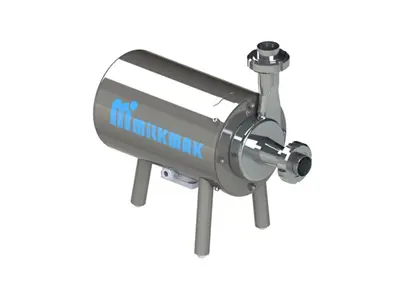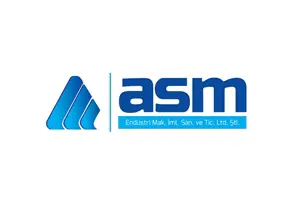Milk Pump
Milk pumps are special equipment used for milking, transporting, and storing milk in dairy production facilities, farms, and dairies. These milk pumps play a critical role in milk production processes by ensuring the hygienic and efficient processing of milk. They perform various tasks from milking to transferring milk to storage tanks. Modern milk pumps are produced in different capacities and with different features and are used at every stage of milk processing.
Milk pumps ensure the collection of milk under hygienic conditions during the milking process. This is crucial for maintaining milk quality and preventing bacterial growth. They accelerate production processes by quickly and safely transferring milk to storage tanks or processing facilities after milking. Milk pumps offer capacity options suitable for all needs, from small-scale farms to large production facilities. Made with stainless steel and high-quality components, milk pumps provide long-lasting use and high performance. Additionally, their easy-to-clean and maintenance-free structure reduces operating costs and maintains hygiene standards.
Models of milk pumps on our website are designed to meet various production needs. Compact and user-friendly models are ideal for small and medium-sized businesses with limited space. High-capacity and fully automatic controlled industrial milk pumps designed for large-scale production offer an excellent solution for large production facilities. Energy-efficient models with low energy consumption provide savings in the long run. With microprocessor-controlled systems, you can make precise temperature and time adjustments to achieve perfect results every time. The stainless steel body and quality components ensure long-lasting use, increasing the return on investment of your machine.
How to Use a Milk Pump?
The correct and effective use of a milk pump is crucial to ensure hygiene and efficiency in milk processing processes. Firstly, before starting to use the pump, ensure that all parts are hygienic and sterile; this step eliminates possible contaminants on surfaces that come into contact with milk, guaranteeing food safety. The pump parts should be carefully assembled according to the manufacturer's instructions; proper assembly ensures the efficient operation of the device and prevents any leaks.
Before using the milk pump, make sure that the milk is at the appropriate temperature and quality. Milk should be carefully connected to the pump's inlet, and the connections should be made correctly. Before starting the pump, it should be connected to a power source, and it should be checked that the device is operating correctly. During the operation, milk transfer through the pump should be done safely and hygienically; it is important to monitor that the pump is running smoothly throughout this process. Additionally, if available on the pump, flow and pressure settings should be optimized according to the requirements.
Once the milk transfer process is completed, the pump should be carefully switched off and disconnected from the power source. After use, all parts of the pump should be disassembled, and a detailed cleaning and sterilization process should be applied; this ensures that the pump is hygienic and ready for use next time. Finally, regular maintenance of the pump allows the device to be used in a long-lasting and trouble-free manner. These maintenance procedures should be carried out at regular intervals according to the manufacturer's instructions. Proper use of the milk pump is essential to maintain product quality and increase operational efficiency.
Milk Pump Prices
Milk pumps play a vital role in milk production and processing processes. These equipment used in all stages from milking to storage, pasteurization to packaging directly affect the efficiency of your business and product quality. Milk pumps designed for modern milk processing facilities meet hygiene standards and provide energy efficiency.
Milk pump prices vary depending on factors such as capacity, technical specifications, and brand. Compact models designed for small-scale businesses may be more affordable, while high-capacity and fully automatic controlled industrial pumps developed for large production facilities may be in a higher price range. Additionally, energy efficiency, durability, and the quality of materials used also affect prices significantly. Milk pumps can have average prices in the range of {price range}. There are various milk pump options available on our website to cater to different scales. You can easily find the milk pump that meets your needs with suitable price options and advantageous payment terms. For detailed information and a price quote, you can contact our expert companies.
To meet your need for a new or second-hand milk pump, you can purchase from reliable manufacturers or authorized suppliers through makinaturkiye.com and also get support from authorized service providers.










